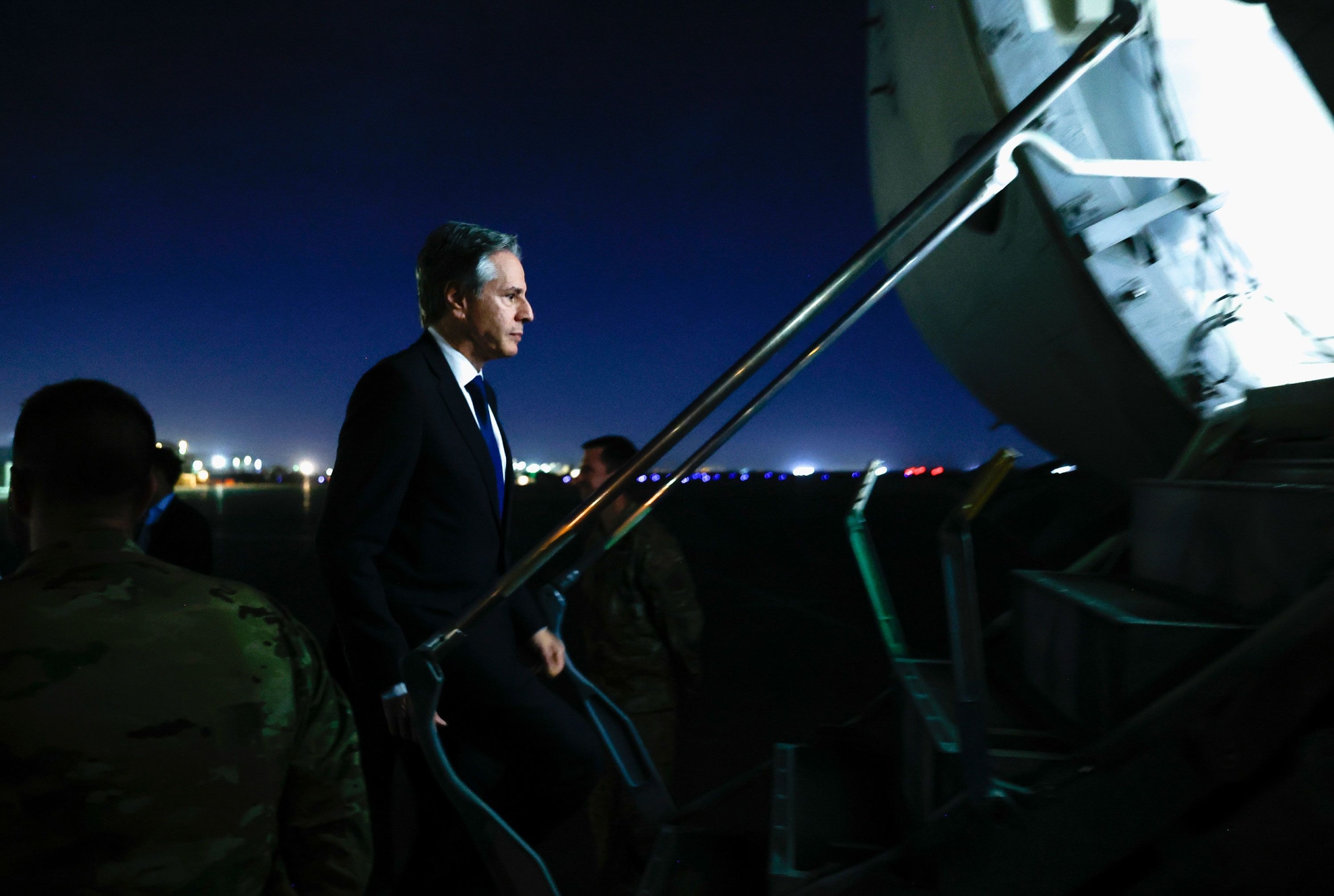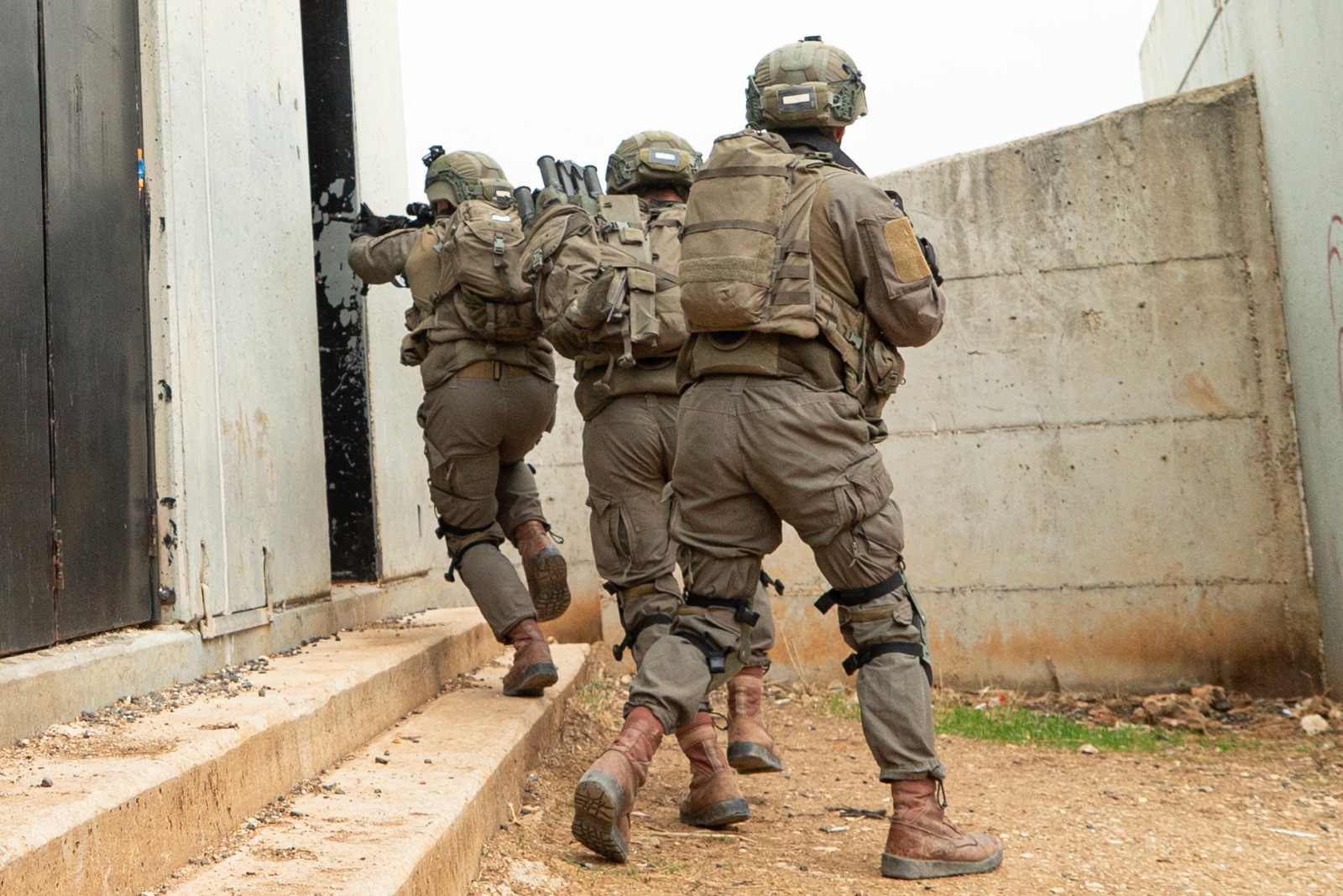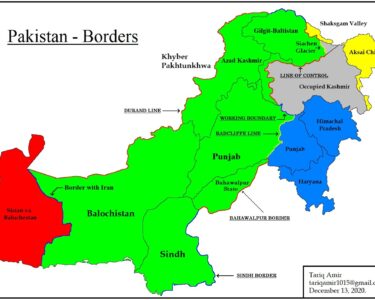WASHINGTON, DC — Secretary of State Antony Blinken is set to travel to Egypt on Tuesday, marking his 10th visit to the Middle East since the war in Gaza began nearly a year ago. This trip is partly focused on refining a proposal to present to Israel and Hamas for a cease-fire and the release of hostages.
Unlike in recent mediating missions, America’s top diplomat this time is traveling without optimistic projections from the Biden administration of an expected breakthrough in the troubled negotiations.
Also, unlike the earlier missions, Blinken has no public plans to go to Israel to meet with Prime Minister Benjamin Netanyahu on this trip. The Israeli leader’s fiery public statements – like his declaration that Israel would accept only “total victory” when Blinken was in the region in June – and some other unbudgeable demands, have complicated earlier diplomatic efforts. Blinken is going to Egypt for talks on Wednesday with Egyptian Foreign Minister Badr Abdelatty and other officials, in a trip billed as focused both on American-Egyptian relations and Gaza consultations with Egypt
 Secretary of State Antony Blinken
Secretary of State Antony Blinken
 US Secretary of State Antony Blinken heads to Egypt on Tuesday for his 10th trip to the Middle East since the war in Gaza began nearly a year ago, this one aimed partly at refining a proposal to present to Israel and Hamas for a ceasefire deal and release of hostages.
US Secretary of State Antony Blinken heads to Egypt on Tuesday for his 10th trip to the Middle East since the war in Gaza began nearly a year ago, this one aimed partly at refining a proposal to present to Israel and Hamas for a ceasefire deal and release of hostages.
Blinken’s trip comes amid the risk of a full-on new front in the Middle East, as Israel increases the threat of military action against the Hezbollah military organization in Lebanon. Biden envoy Amos Hochstein was in Israel on Monday to try to calm tensions after a stop in Lebanon.
Hezbollah has one of the strongest military forces in the Middle East, and like Hamas and smaller groups in Syria and Iraq, it is allied with Iran. Hezbollah and Israel have exchanged strikes across Israel’s northern border with Lebanon since the October 7 attack by Hamas started the war in Gaza. Hezbollah says it will ease those strikes — which have displaced tens of thousands of civilians on both sides of the border — only when there’s a cease-fire in Gaza.
 Amos Hochstein, special adviser to President Biden, in Beirut last month.
Amos Hochstein, special adviser to President Biden, in Beirut last month.
 Palestinian brothers Achmed and Hussama Kafana, ages 5 and 7, use the top of an umbrella as a prayer mat in the ruins of the Omar Abed El Aziz Mosque in Beit Hanoun during Friday prayers. The mosque was damaged during the war.
Palestinian brothers Achmed and Hussama Kafana, ages 5 and 7, use the top of an umbrella as a prayer mat in the ruins of the Omar Abed El Aziz Mosque in Beit Hanoun during Friday prayers. The mosque was damaged during the war.
Hochstein also underscored to Israeli officials that the Biden administration remained committed to finding a diplomatic solution to the tensions on Israel’s northern border, either in conjunction with a Gaza deal or on its own, the official said.
Netanyahu told Hochstein that it would “not be possible to return our residents without a fundamental change in the security situation in the north.” The prime minister said Israel “appreciates and respects” U.S. support but stressed that Israel “will do what is necessary to maintain its security and ensure the safe return of northern residents to their homes.” Meanwhile, Israel’s Defense Minister Yoav Gallant warned in his meeting with Hochstein that “the only way left to ensure the return of Israel’s northern communities to their homes will be through military action,” his office said.
In Gaza, the U.S. says Israel and Hamas have agreed to a deal in principle and that the biggest obstacles now include a disagreement on details of the hostage and prisoner swap and control over a buffer zone on the border between Gaza and Egypt. Netanyahu has demanded in recent weeks that the Israeli military be allowed to keep a presence in the Philadelphi corridor. Egypt and Hamas have rejected that demand.
 Sundown’s fading light shows the destruction in the Sha’af neighborhood of Gaza City after the summer war between Israel and Hamas.
Sundown’s fading light shows the destruction in the Sha’af neighborhood of Gaza City after the summer war between Israel and Hamas.
 Bodies of Palestinians who were killed in a blast at the Al-Ahli Arab Hospital in Gaza. Abed Khaled/Associated Press.
Bodies of Palestinians who were killed in a blast at the Al-Ahli Arab Hospital in Gaza. Abed Khaled/Associated Press.
Netanyahu says he is working to bring home the hostages. However, his critics accuse him of slow rolling a deal because it could bring down his hardline coalition government, which includes members opposed to a truce with the Palestinians.
When asked earlier this month if Netanyahu was doing enough for a cease-fire deal, President Biden bluntly said, “no.” But he added that he still believed a deal was close.




 IDF soldiers.
IDF soldiers.


